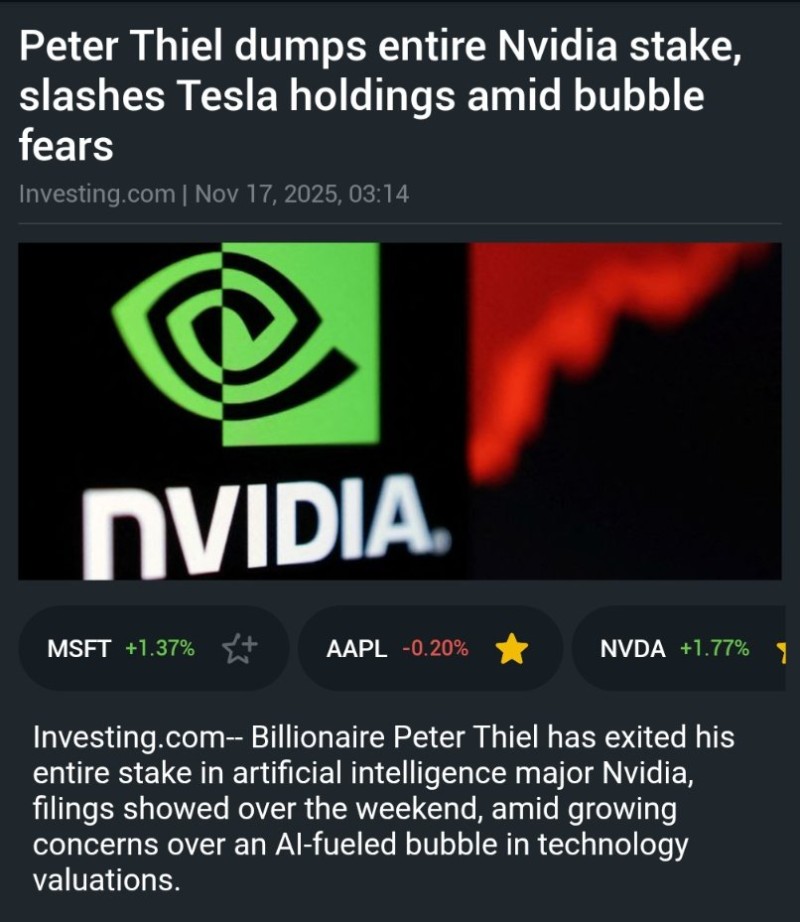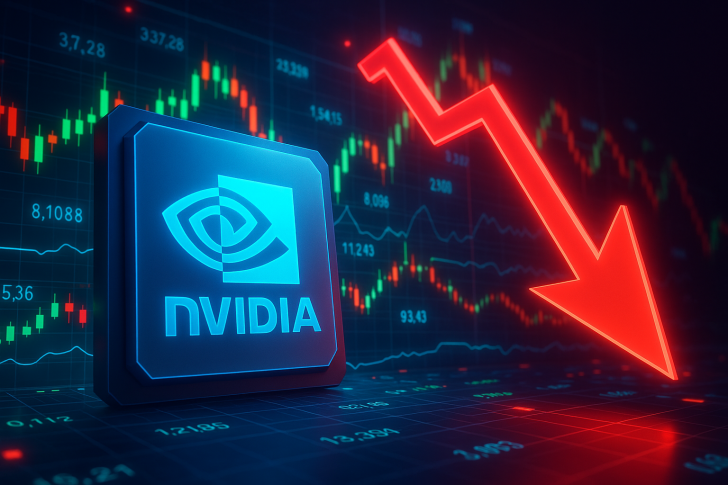A recent headline paired with a chart showing Nvidia's logo against a red downward trend line has triggered debate across financial circles. Peter Thiel has sold his entire Nvidia stake and significantly reduced his Tesla holdings, citing bubble concerns linked to the unprecedented surge in AI-related valuations. Combined with similar moves by Michael Burry and SoftBank, the selling pressure from high-profile investors has sparked speculation: Is this smart profit-taking—or an early warning sign for the AI trade?
3 Star Investors Signal Possible AI Bubble
A clear pattern has emerged: first Burry reduced exposure, then SoftBank exited, and now Thiel has joined the list. Thiel's decision stems from growing concerns over an AI-fueled bubble in technology valuations. This aligns with a broader narrative where Nvidia's meteoric rise is being reassessed by some of the world's most seasoned capital allocators.

The symbolism is striking—while NVDA was up 1.77% on the day, the blurred red graph represents rising fear that the AI rally may be running ahead of fundamentals.
Why Major Players Are Taking Profits
Despite ongoing strength in demand for Nvidia's AI accelerators, several factors explain the selling. Nvidia trades at a premium not just to other chipmakers but to most mega-cap tech stocks. The AI trade has become crowded, with NVDA serving as the cornerstone of AI-focused ETFs and creating concentration risk. Data-center spending by hyperscalers tends to come in waves, and any slowdown could pressure revenue growth. Higher interest rates and regulatory scrutiny are increasing volatility across high-growth tech names.
Thiel's decision doesn't mean Nvidia's business is weakening—it suggests the risk-reward profile has shifted after an extraordinary multi-year rally.
What This Means for Price Action
The imagery evokes caution: Nvidia's logo juxtaposed with a declining red trendline suggests skepticism is creeping into sentiment. When well-known investors de-risk, short-term volatility typically increases—even if long-term fundamentals stay strong.
Nvidia's AI dominance and revenue growth still attract long-term buyers, but near-term price swings could intensify as markets digest the cooling of early AI euphoria. For retail investors, this is the moment to evaluate portfolio exposure and consider whether gains have outpaced durable earnings power.
 Eseandre Mordi
Eseandre Mordi

 Eseandre Mordi
Eseandre Mordi


